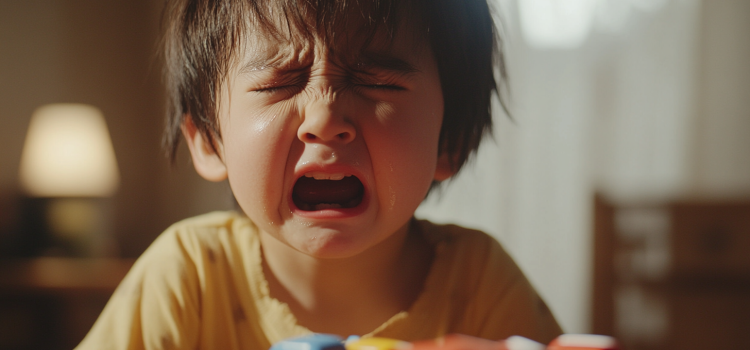
Do you have an overly emotional child? How does therapy cause children to obsess over their emotions?
In therapy, children often reflect on and share their emotions, and parents and educators regularly check on how kids feel. However, Bad Therapy by Abigail Shrier argues that constantly asking children how they feel teaches them to see their emotions as overly important.
Keep reading to learn why therapy negatively impacts a child’s emotional intelligence.
Therapy Makes Children Obsess Over Emotions
Shrier says that therapy causes overly emotional children in three ways:
First, young people learn to use their emotions as the basis for decisions. This can lead to poor decisions because our emotions are constantly changing and don’t always match reality. Shrier explains that many external factors can influence our emotional state, and feeling something doesn’t automatically justify acting on it. For example, if a teen is upset with their friend due to a misunderstanding, they might end the friendship in anger without trying to uncover the full story.
Second, when children frequently reflect on their emotions, they feel more negative emotions like anxiety or sadness. This is because happiness isn’t a common feeling—most of the time we feel neutral at best. So, if you ask kids how they feel every day, you’ll often just remind them of something negative, such as worries or stresses they have about the day.
(Shortform note: There’s also an evolutionary explanation for why you shouldn’t be frequently asking your child to reflect on their emotions. In The Happiness Trap, Russ Harris explains that discomfort is our brain’s default setting because we’re evolutionarily wired to focus on threats, worries, and problems. Our ancestors needed these negative-focused traits to survive, looking out for dangers like predators and food shortages. While we no longer face these threats today, our minds still operate in threat detection mode, making us focus on negative feelings. So, when you regularly prompt your child to check in with their emotions, you’re essentially activating this threat-detection system, giving them more opportunities to spot potential “threats.”)
Third, fixating too much on emotions can make it hard for young people to manage them—to acknowledge their emotions, put them into perspective, and move on. Shrier says that when young people share their mental health problems, they often get sympathy and attention, which encourages them to exaggerate or prolong their issues instead of trying to resolve them.
| How to Help Kids Manage Their Emotions Psychology and parenting experts provide tips for teaching your children to manage their emotions rather than fixate on them: In 13 Things Mentally Strong Parents Don’t Do, psychotherapist Amy Morin suggests parents teach children to influence their own emotional state rather than be controlled by it. To do this, first teach children that feelings and actions are separate things. For instance, just because you feel angry doesn’t mean you need to throw a tantrum—instead, you can channel those emotions into constructive activities like talking to someone or writing in a journal. Then, help kids develop their own toolkit of coping strategies. This teaches them to acknowledge their emotions without letting those feelings drive impulsive choices. In The Whole-Brain Child, neurospsychiatrist Daniel J. Siegel and parenting expert Tina Payne Bryson recommend teaching kids that feelings are temporary states, not permanent traits. They explain that just as weather patterns change, emotions naturally shift and evolve over time. When children understand this concept, they’re less likely to get overwhelmed by intense feelings or see them as defining characteristics. One way to help them understand this concept is by asking kids how they might feel about a current situation in five minutes, five hours, or five days to help them gain perspective. Simple mindfulness exercises can also help kids step back from overwhelming feelings. |






